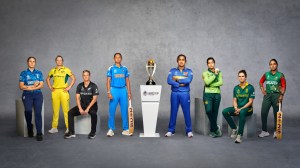Not so equal in the UK
Every time I visit London, I return disillusioned. Here is an age-old democracy, whose pluralistic temperament is declining, bit by bit. I c...

Every time I visit London, I return disillusioned. Here is an age-old democracy, whose pluralistic temperament is declining, bit by bit. I can feel, even taste, the sense of superiority that white Britishers increasingly brandish. The liberal space is shrinking; racism is increasing. How visible is the divide!
When questioned, non-Whites do not deny it. But they seem resigned to their fate. They have come to believe that second-class citizenship is the price they must pay if they want to live in the UK. In fact, they are convinced that they have no choice because the economic conditions prevailing back home will only make their life more miserable. But they do complain that the English have changed in the last decade or so. Especially after the September 11 strikes in the United States, every non-White is suspect.
‘‘A white man does not sit next to me till the last seat in the bus is taken,’’ an Indian told me. ‘‘We worry about our children.’’ In schools, parks and restaurants, the young face discrimination practically every day, in some form or the other. Bright as many Asian children are, they face jealousy and at times attract the uncomfortable attention of the authorities.
Indians openly talk about discrimination in recruitment. Many instances were cited to me where jobs or promotions went to a white person even when the domiciled non-White was better qualified. ‘‘The top slots are only for the whites,’’ people working in different government departments said. There was an invisible glass ceiling, an unwritten law not to let non-Whites go beyond a point. Some went to the extent of saying that Margaret Thatcher’s Conservative party was far more objective than Tony Blair’s Labour.
It is ironical that democratic socialism was born in the UK. It is a country where the ideal of egalitarianism thrived. Disparities were looked down upon. But now racial discrimination and exhortations to meet the imperatives of economic liberalisation and privatisation have drowned the voice of equality in almost every sphere. It is the survival of the fittest, more so of the White.
I think the absence of men of stature outside the system has made the British dependent on mediocre politicians and over-rated academicians. There are no Webbs, no Laskis today. Not even Attlees or Bevans. There are no bright ideas emerging, no intellectual debate. The BBC believes it sets the agenda. But TV networks dish out puerile discussions by experts of limited intelligence and by politicians of dubious conviction. The thinkers, if there are any, seem to have been pushed into the background.
There is hardly any embarrassment that the UK has become a ‘colony’ of America. ‘‘We are Uncle Sam’s poodle,’’ said a radical author. ‘‘And the worst part is that we have no sense of shame.’’ A friend of the US is a friend of the UK. If Washington says one word against a country or a leader, London comes out with two. There is little dissent, not even in the press. No wonder, Tony Blair, a loyal servant of Washington, is more entrenched now than before.
In this scenario, fighting against discrimination is not easy. Those who put up a fight can be dubbed terrorists. The police will harass them. People may shun them. Non-Whites in Britain fall in this category.
|
Indians openly talk about discrimination in recruitment in the UK. Instances are cited where jobs or promotions went to a white person even when the non-White was better qualified |
People from the subcontinent are conscious of this. But what do they do? Their number is too small and there are new rules and regulations to hurt them and their pride. Had they been united, they would have fared better. But they are hopelessly divided. The chasms help the authorities.
The atmosphere is so conducive to the Whites that they have not only covered up their prejudice but also silenced the demand that different nations had raised for the return of their historical relics that lie in British museums. Leading the clamour are Greece and Ethiopia. India is nowhere in the picture because the NDA government believes that it is necessary to have ‘good relations’ with Great Britain and not ‘spoil them’ by asking for the Kohinoor and a host of other things the British took away from India during their 150-year rule.
Lord Dalhousie forcibly took the Kohinoor in 1858, now part of the British crown, from Dalip Singh, the eight-year-old son of Maharaja Ranjit Singh. I raised the question of the Kohinoor’s return in Parliament. The then Foreign Minister Jaswant Singh replied that the matter had been taken up with the British government. To my horror, I found in London that it was not true. The high commission in London had no knowledge of any step New Delhi had taken, if at all. The Indian government was saying something which was not true.
The Kohinoor is not the only Indian relic the British government forcibly retains. It has held back books, documents, papers, pictures, posters and paintings of the Raj and from our struggle for independence. The British have taken advantage of the differences between India and Pakistan over the division of the material and distributed them from the India Office Library to different museums in the UK. It looks as if India has more or less accepted the appropriation of the entire material by the British government. This has made the task of recovery more difficult. And then there are several treasures of Indian art at the Victoria and Albert museums. Most of the pieces are stocked in the basement. The museum authorities admitted at the time when the queen opened the Nehru Gallery that the rest of the possessions would remain stacked in the basement for many years to come. This speaks volumes for our effort to get back the historical relics from the British, those that have been taken away forcibly or for a pittance.





- 01
- 02
- 03
- 04
- 05


























